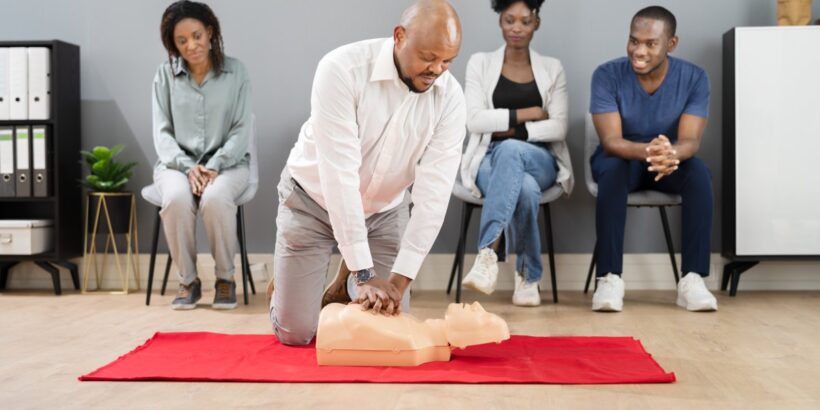Cardiopulmonary resuscitation, better known as CPR, is a life-saving technique consequential in emergencies like heart attacks or near-drownings. For some professionals, learning CPR is not just a valuable skill but a mandatory job requirement. Their ability to act quickly can mean the difference between life and death.
Understanding which careers mandate CPR training can help you prepare for a specific field or appreciate the skilled individuals in your community. Let’s explore the roles where this certification is essential.
Medical and Emergency Services
It’s no surprise that healthcare and emergency workers must know CPR. These professionals are usually the first on the scene during a medical crisis. They need the skills and equipment to stabilize a person’s condition until more advanced medical care is available.
- Doctors, Nurses, and Paramedics: These frontline medical professionals regularly use CPR. Their expertise is vital in hospital settings and during emergency responses.
- EMTs and Firefighters: As first responders, they frequently encounter accidents and health emergencies that require immediate CPR.
- Dentists and Dental Hygienists: Patients can experience unexpected medical events during dental procedures. CPR training prepares dental staff to manage these rare but serious situations.
Education and Childcare
Professionals who work with children have a significant responsibility for their safety. Since emergencies can happen at any time, CPR certification is a standard requirement in these fields. Parents trust these individuals to protect their children, and CPR skills are a key part of that trust. Therefore, another profession that requires CPR certification often involves supervising young people.
- Teachers and School Staff: Many school districts require teachers, coaches, and administrative staff to be CPR certified.
- Daycare Workers and Babysitters: Caring for young children, especially infants, requires readiness to respond to choking incidents and other breathing emergencies.
- Camp Counselors: In outdoor or recreational settings, counselors need CPR skills to respond to accidents or injuries when immediate medical help is not available.
Fitness and Recreation
Active environments like gyms and pools carry a risk of sudden cardiac events or accidents. Professionals in these settings must prepare to respond effectively.
- Personal Trainers: They work closely with clients who push their physical limits, making CPR knowledge essential.
- Lifeguards: This is perhaps one of the most well-known jobs requiring CPR. Lifeguards train to handle drowning and other water-related emergencies.
- Coaches: Athletic coaches must be ready to assist players who might suffer from sudden cardiac arrest or other serious injuries during a game or practice.
Other Key Professions
Several other fields also mandate CPR certification to ensure public safety. These roles often place individuals in positions of authority or care where they might be the only person available to help during an emergency.
- Flight Attendants: They are the first line of response for in-flight medical emergencies.
- Law Enforcement Officers: Police often arrive at emergency scenes before medical personnel.
- Social Workers: They may work with vulnerable individuals in various environments where medical emergencies can occur.
Your Path to Certification
Knowing CPR empowers you to save a life. For many careers, this training is a non-negotiable part of the job. It provides the confidence and skills needed to act decisively in a crisis.
